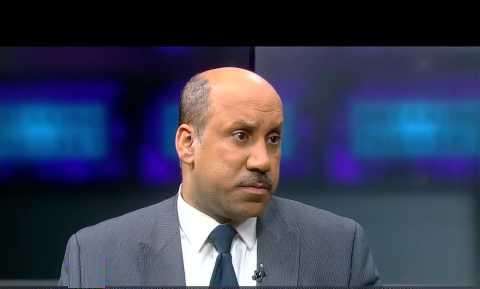Ahlul Bayt News Agency - In an interview with Ali al-Ahmed, director of the IGA from Washington, to ask for his view on Saudi Arabia’s presence in the Camp David summit in the United States.
The following is a rough transcription of the interview.
Q: How do you interpret the no-show King Salman at the Camp David summit?
Al-Ahmed: Well, I wrote on my Arabic Twitter account on April 29 that King Salman will not be attending the summit. This decision was made earlier because King Salman is not well. He has Alzheimer’s which makes him unable to conduct and participate in long working meetings. So, for a two-day summit, King Salman is not able really to carry on these conversations. He is good maybe for half-an-hour or so and then he is going to be tired. So, he is not really capable of attending the summit for that reason, that is number one. Number two is that Mohammad bin Nayef, Crown Prince, and his son Mohammad bin Salman would be in fact much better representative of the Saudi government because they are the ones who are running the country. The two people are acting as two prime ministers, so that are the reasons behind it. In terms of this media storm about that, it’s a snub and Saudis are angry, this is nothing new, we have seen this before any time, the Saudi king or crown prince come to Washington. This fabricated storm that the Saudis are upset at the United States almost blackmailing the United States and sort of showing Saudi Arabia as independent from the United States’ policy. Really, it is not the story to waste our time on.
Q: Well, it is rather than the US-Saudi relations, this No-Show king basically is a highlight of the way things are within Saudi Arabia and how the monarchy structured. So in the coming weeks, specifically when you talk about how the crown prince and the deputy crown prince are the ones who are actually in charge, what does that mean for Saudi policies when it comes to things like Yemen and even the potential nuclear deal between Iran and the P5+1?
Al-Ahmed: Well, that shows the Saudi government, and I’ve said this before, you will see much more aggressive policy, we saw that since January as King Salman took power. Before he finished his 100 days, we saw, his son waged a war against Yemen, a major war and increased support to their allies in Iraq and Syria, when I say allies I talk about its proxy terrorist groups. And inside the country, we also see an increase of another war, so you are seeing a much more hard-line Saudi policy at all fronts. You will see closer ties with Washington, France and the UK, and buying more weapons, signing more security deals and so on. That is what we expect in the summit in Washington much more military and security involvement by the United States and protecting the [Persian] Gulf monarchies.
/129

